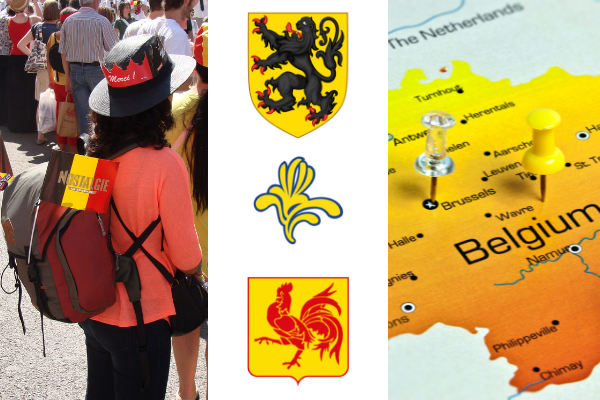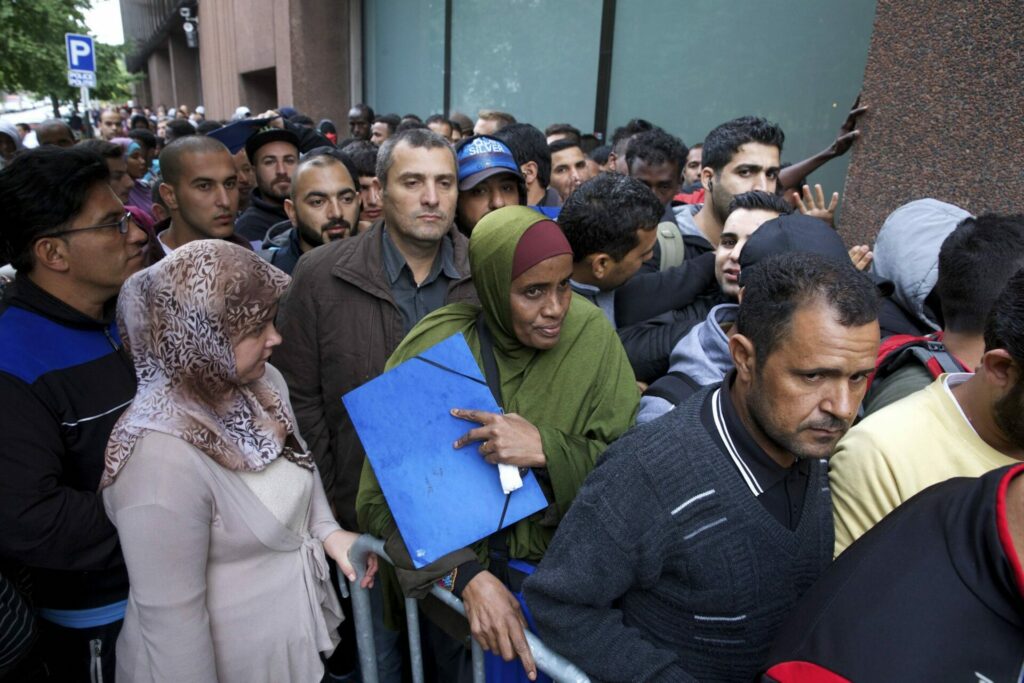What does it mean to be Belgian? It's a question that many have posed, each time offering a very personal perspective on the idea of nationality and identity.
In a city where one-third of employees are not Belgian, the capital's cosmopolitan credentials are undeniable. Yet though we are accustomed to hearing newcomer accounts of running the bureaucratic gauntlet and slowly submitting to an acceptance (if not immediate love) of "Belgitude", we hear far less about how lifelong Belgians feel about national identity.
Of course, Belgium itself is a country divided, with regional differences marking national politics indelibly. This is most obvious in the linguistic frontier between Flanders and Wallonia, though one feels that the identity of each is more often presented as a distinction to the other rather than by defining themselves positively.
Nonetheless, a recent survey of Flanders residents went some way in revealing regional attitudes on the nebulous notion of national identity. Most striking was the widely-held opinion that being born in Belgium is a prerequisite to truly being Belgian. We should be careful of reading into this an ingrained distrust of outsiders, but on both ends of the political spectrum, there is a clear concern to protect and promote "Belgium-ness". Whatever that is.
The concept of national coherence is itself inherently flawed, as major political rifts such as Brexit and other populist movements have shown. The idea that it is even possible to reach any sort of consensus on matters central to a region's cultural and social heritage is not only far-fetched but also de-constructive.
In an effort to rebuild bridges so recklessly torn down, Belgium's economic mission to London this week saw ministers making the case for Brussels as a cultural and economic crossroads of the continent. With the UK's withdrawal from the EU largely founded on (some would argue bogus) fears of national sovereignty being watered down, Brussels Secretary of State for Foreign Trade and International Relations Pascal Smet offered an alternative and more conciliatory view.
Smet asserted that "The thing that unites all of us in Brussels, is Brussels" – an openness that is evident to anyone that knows the city. Yet whether this everyman's logic can take root beyond the hyper-diverse capital is a far more delicate question.
Do you consider yourself Belgian? Let @Orlando_tbt know.
Belgium in Brief is a free daily roundup of the top stories to get you through your lunch break conversations. To receive it straight to your inbox every day, sign up below:
1. World first: Belgian researchers discover way to block coronavirus
In a very promising world first, Belgian researchers at the UCLouvain university have managed to identify and block the key that allows the coronavirus to attack cells – preventing a Covid-19 infection. Read more.
2. Becoming Belgian: Only by birth, say Flanders residents
More than half of Flemish voters (55%) believe that being born in Flanders is a prerequisite to identifying as “truly” Belgian or Flemish, according to a survey of around 2,000 residents conducted by the University of Antwerp and the VUB. Read more.
3. Brussels set to open one of the largest modern and contemporary art museums in the world
Kanal-Centre Pompidou is set to be one of the largest modern and contemporary art museums in the world when it opens along the Brussels canal in a former Citroën showroom and garage. Read more.
4. Awkwardness in EU Parliament as delegates treated to interpretive dance performance
To celebrate the closing of the Conference on the Future of Europe at the European Parliament on Monday, participants in the hemicycle were treated to an interpretive dance performance in what was intended as a moment of light entertainment. Read more.
5. Brussels church to be transformed into rock-climbing hall
Popularity for rock climbing is growing in Brussels and soon enthusiasts will be able to enjoy the sport in a rather unusual venue as the Saint-Antoine church in the Forest neighbourhood will undergo an extraordinary transformation. Read more.
6. More Belgians forced to seek energy payment plans
Following the explosion of energy prices last year, more and more Belgians are failing to meet payments for their energy bills, leading them to defer and spread out payments, according to Belgian newspaper L’Echo. Read more.
7. Hidden Belgium: Train World
The spectacular Train World in Brussels reopens with a new exhibition dedicated to royalty and trains. The exhibition looks at the links between Belgian royalty and the railway network they helped to develop in Belgium. Read more.


